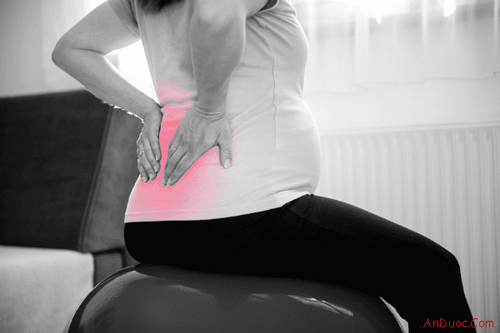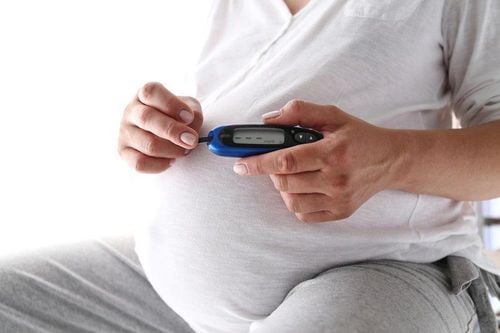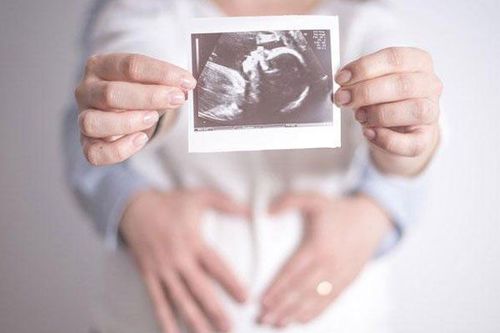This is an automatically translated article.
The article is professionally consulted by Doctor Department of Obstetrics and Gynecology, Vinmec Hai Phong International General Hospital.
At 32 weeks (8 months) of pregnancy, the fetus is in the process of comprehensive development. During this period, children have had visual development; the formation of new organs such as fingernails, toenails, hair; and rapid increase in body weight.
1. Fetal changes at 32 weeks of pregnancy
32 weeks into pregnancy, or 30 weeks after conception, the baby continues to develop fully. This is called the baby's breathing period. The mother can see the fetal respiratory rate by observing the rising and falling rhythm in the abdomen.
At this time, the 32-week fetus has had some significant developments such as:
Toenails and fingernails have grown, along with real hair, which can be seen on ultrasound. The soft, silky hair that has covered your baby's skin for the past few months (fluff) begins to fall out this week. Your baby is growing fast: By now, your baby can measure 16.9 inches (430 mm) from crown to rump and weigh 1755 grams. As much as a week a pregnant woman's weight increases, half of that is transferred to the baby. Your baby's weight will increase by 1/3 to 1/2 before birth in the next 7 weeks to prepare for the process of acclimatization to the environment outside the uterus. Your baby is already able to focus on large objects that aren't too far away and this focus will stay that way until birth. At this time, the baby performs the activities of opening and closing eyes, squinting, blinking and practicing eye regulation. When there is strong light through the mother's womb, the baby is able to avoid himself, close his eyes, and adjust the pupils to limit the light entering the eyes.
Trắc nghiệm: Khi thai nhi 32 tuần, mẹ cần chú ý gì?
Khi bước vào tuần thứ 32 của thai kỳ, thai nhi sẽ có bước phát triển vượt trội và dẫn đến những thay đổi về mọi mặt trong cơ thể mẹ. Vậy hãy cùng tìm hiểu xem khi thai 32 tuần chúng ta cần lưu ý những gì qua bài trắc nghiệm sau đây nhé.2. What do pregnant women need to prepare at this stage?
2.1. What to do when shortness of breath increases? At this stage, you may feel short of breath. That's because your uterus is pushing up close to your diaphragm - especially during a high pregnancy, multiple pregnancies, or excessive amniotic fluid.
Now you may feel short of breath because more oxygen is needed to supply the fetus and the body is trying to adapt to meet this need in many ways. Increased hormones, especially progesterone, directly affect the lungs and stimulate the respiratory center in the brain. And although the inhalation rate per minute changes very little during pregnancy, the amount of air inhaled and exhaled with each breath increases dramatically.
Shortness of breath during pregnancy can also be aggravated by an existing condition, such as asthma, anemia or high blood pressure. If you're feeling a little short of breath, try these tips for pain relief:
Take things a little slower and don't push yourself too hard when active. Sit up straight and keep your shoulders straight (especially when sitting) to increase the oxygen supply to the lungs. You can put a few extra pillows when lying in bed at night. Try to be patient: After giving birth, your breathing will soon return to normal.

Tell your doctor if you feel short of breath because of a respiratory illness, such as the flu. Pregnant women with respiratory illnesses often have more severe symptoms and are more likely to develop complications, such as pneumonia. (That's why getting a flu shot is so important if you're pregnant during flu season.)
In addition, you should also tell your doctor if you have problems with blood clotting. Because blood clots during pregnancy have the potential to travel to the lungs, causing a pulmonary embolism. See your doctor right away if any of the following symptoms occur:
Sudden or severe shortness of breath Asthma worsens Tachycardia Fast or irregular heartbeat Feeling about to pass out Chest pain or pain when breathing Pale Lips, fingers or blue toes (sign of lack of oxygen) Feeling that your body is not getting enough oxygen Persistent cough, cough with fever or chills, or coughing up blood. 2.2. How to relieve Braxton Hicks contractions? Braxton Hicks contractions are intermittent uterine contractions that begin early in pregnancy, although you probably won't notice them until delivery. It is named for John Braxton Hicks, the English physician who first described contractions in 1872. As pregnancy progresses, Braxton Hicks contractions tend to occur more frequently.
Braxton Hicks contractions are usually painless, but they can be uncomfortable. To ease discomfort from Braxton Hicks contractions, try the following:
Change activity to relieve pain: Walking or rest relieves contractions, flexibility is recommended. (Note: real labor contractions persist and progress no matter what you do.) Drink some water as these contractions can sometimes be caused by dehydration. Practice relaxation exercises or take slow, deep breaths: While it won't stop Braxton Hicks contractions, it can help you deal with discomfort (Practice some of the pain management strategies you already know. in childbirth preparation class).

Call 911 or go to the hospital if contractions become rhythmic, painful, or more frequent, or if there are any signs of preterm labor:
Abdominal pain or cramps that resemble periods regular contractions (at least 6 times an hour, or every 10 minutes, even if they are painless) Vaginal bleeding Increased vaginal discharge or unusual changes such as watery discharge, which look like mucus or blood (even if it's just pink) More pressure in the pelvis or lower abdomen (like a baby pushing down) Low back pain, especially if it's been less present or present present at a mild level. The 32 week fetus stage is an important antenatal check-up, the mother needs to be examined:
Routine examination: Measure weight, vital signs, check for signs of edema, uterine elevation,... Fetal ultrasound: Ultrasound negative fetal malformation screening (If the 28-week mark has not been checked) Blood test: Check blood sugar, electrolytes, ... Urine test. Vinmec International General Hospital currently offers all-inclusive maternity health care packages with outstanding quality. Pregnant women are accompanied by experienced obstetricians and gynecologists at Vinmec throughout the process during pregnancy - labor - postpartum. Maternity packages at Vinmec International General Hospital include:
Maternity package 12 weeks Maternity package 27 weeks Maternity package 36 weeks Maternity package - labor.
Please dial HOTLINE for more information or register for an appointment HERE. Download MyVinmec app to make appointments faster and to manage your bookings easily.
Reference source: Webmd.com; Babycenter.com













